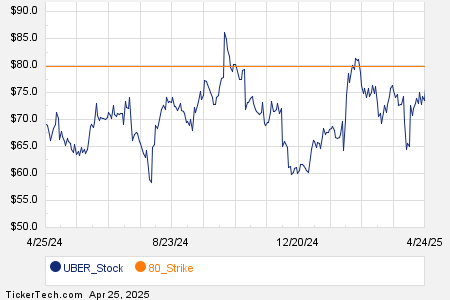Companies are racing to lead the artificial intelligence (AI) revolution, rapidly developing models and platforms and turning to Nvidia (NASDAQ: NVDA).
Indeed, Nvidia, the tech giant, makes the top-performing chip to train AI models and power AI systems. This has facilitated tremendous earnings growth, with the most recent quarter showing a staggering 206% jump in revenue and a more than 1,200% surge in net income, both reaching into the billions of dollars.
As a result, Nvidia’s share price has soared by over 200% in the past year. Even after this exceptional performance, the shares trade for a reasonable 34 times forward earnings estimates for a company that analysts expect to achieve triple-digit annual growth over the next five years. However, there are several key factors investors should consider before jumping into this market. Let’s delve into these issues.

Image source: Getty Images.
1. The U.S. ban on chip exports to China could hurt
Nvidia sells its chips and AI services globally through its data center unit, which has been a significant contributor to the company’s total revenue. Notably, China has represented 20% to 25% of data center revenue in recent quarters, but recent developments may change this dynamic.
The U.S. has prohibited the sale of high-performance AI chips to China and other restricted countries due to security concerns related to the potential use of the chips in “advanced military systems.” This led Nvidia to develop a new category of chips for China to meet U.S. guidelines, only to have them banned for export as well.
Although Nvidia plans to launch a new chip for China in the second quarter of this year, reports suggest that China’s top cloud companies are not enthusiastic about a slower chip and may turn to local providers instead.
In its most recent earnings call, the company stated that it anticipates a “significant” decline in sales in China and other affected countries in the next reporting period. While growth in other regions should offset this decline, Nvidia’s inability to export its newer chips remains a concern and represents a headwind for the company.
2. Rivals are gaining ground — but Nvidia has the ticket to staying ahead
Despite facing competition from other chip designers and its own partners, such as Amazon’s Amazon Web Services (AWS), Nvidia maintains a dominant share of the AI chip market, at more than 80%. This is due to the unparalleled speed and performance of its chips, which are crucial for “deep learning” AI models processing vast amounts of data to deliver sophisticated responses.
Although rivals are making inroads, Nvidia’s financial strength enables significant investment in research and development (R&D), maintaining its technological edge. In the most recent quarter, Nvidia hiked R&D spending by 18% to $2.2 billion, indicating a commitment to staying ahead in the industry.
3. AI growth is just getting started
Furthermore, the surge in spending on AI chips and related services is only the beginning. The global AI market is expected to reach $1.3 trillion in 2030, growing at a compound annual rate of over 36%. This technology has the potential to revolutionize operations across various industries, from drug discovery to autonomous driving and digital factories.
Nvidia’s platform not only offers chips but entire ecosystems for these industries, facilitating easy integration of AI technology for diverse applications.
While Nvidia faces headwinds, such as the ban on chip exports to China and competition, the overall outlook remains positive. The company’s growth trajectory and potential for continued success validate its position as an attractive investment option in the long term.
Should you invest $1,000 in Nvidia right now?
Before you buy stock in Nvidia, consider this:
The Motley Fool Stock Advisor analyst team just identified what they believe are the 10 best stocks for investors to buy now… and Nvidia wasn’t one of them. The 10 stocks that made the cut could produce monster returns in the coming years.
Stock Advisor provides investors with an easy-to-follow blueprint for success, including guidance on building a portfolio, regular updates from analysts, and two new stock picks each month. The Stock Advisor service has more than tripled the return of S&P 500 since 2002*.
See the 10 stocks
*Stock Advisor returns as of February 12, 2024
John Mackey, former CEO of Whole Foods Market, an Amazon subsidiary, is a member of The Motley Fool’s board of directors. Adria Cimino has positions in Amazon. The Motley Fool has positions in and recommends Advanced Micro Devices, Amazon, and Nvidia. The Motley Fool recommends Amgen and Bayerische Motoren Werke Aktiengesellschaft. The Motley Fool has a disclosure policy.
The views and opinions expressed herein are the views and opinions of the author and do not necessarily reflect those of Nasdaq, Inc.


